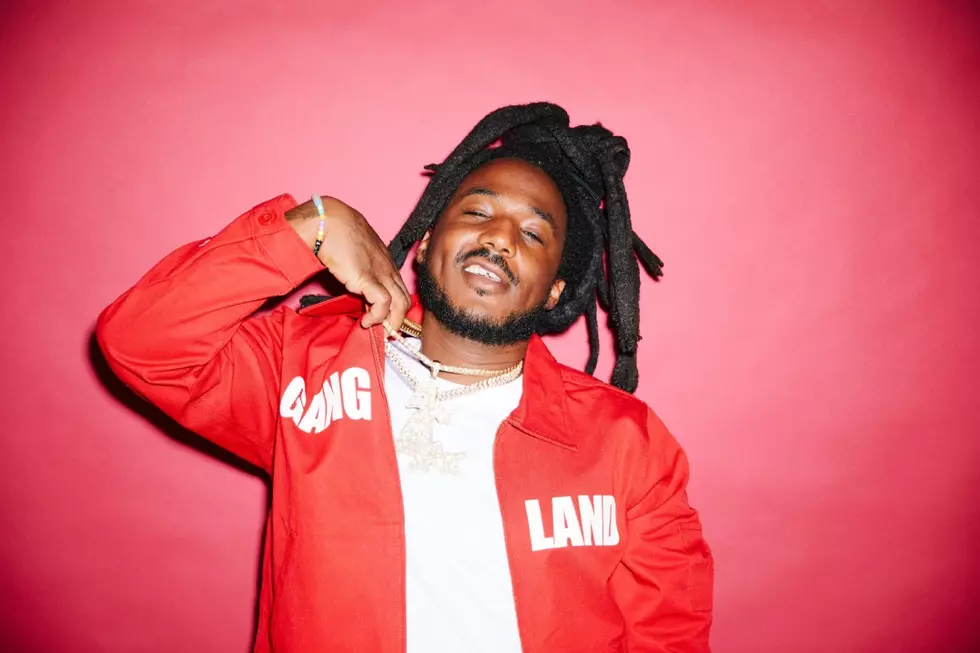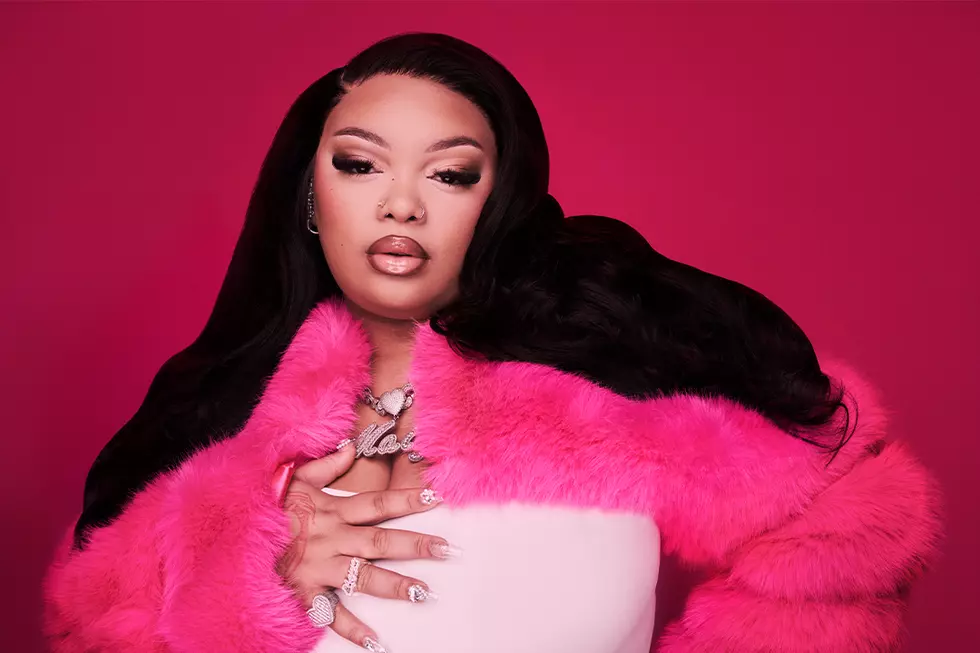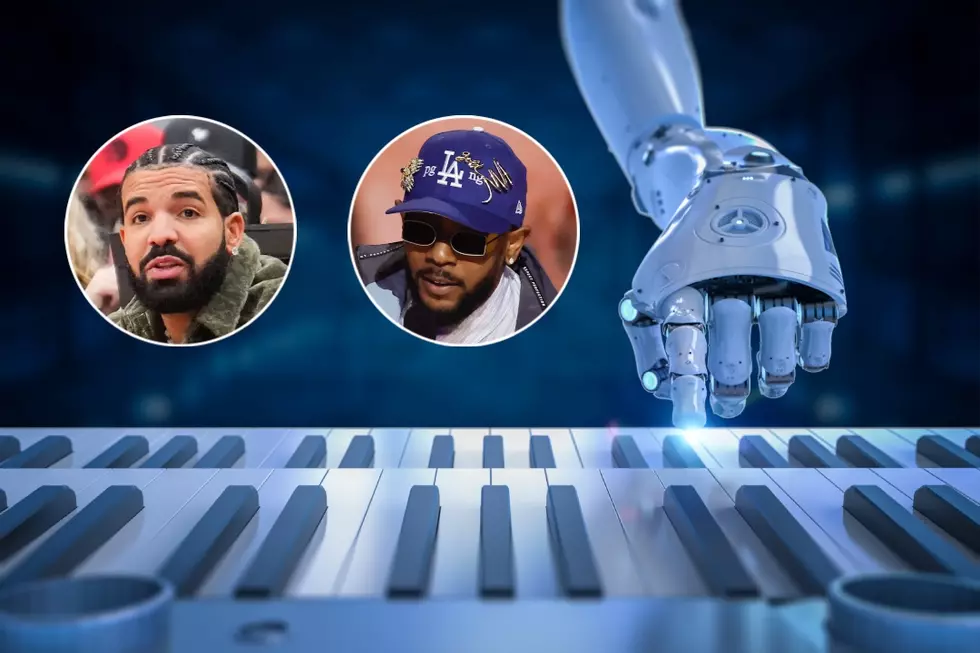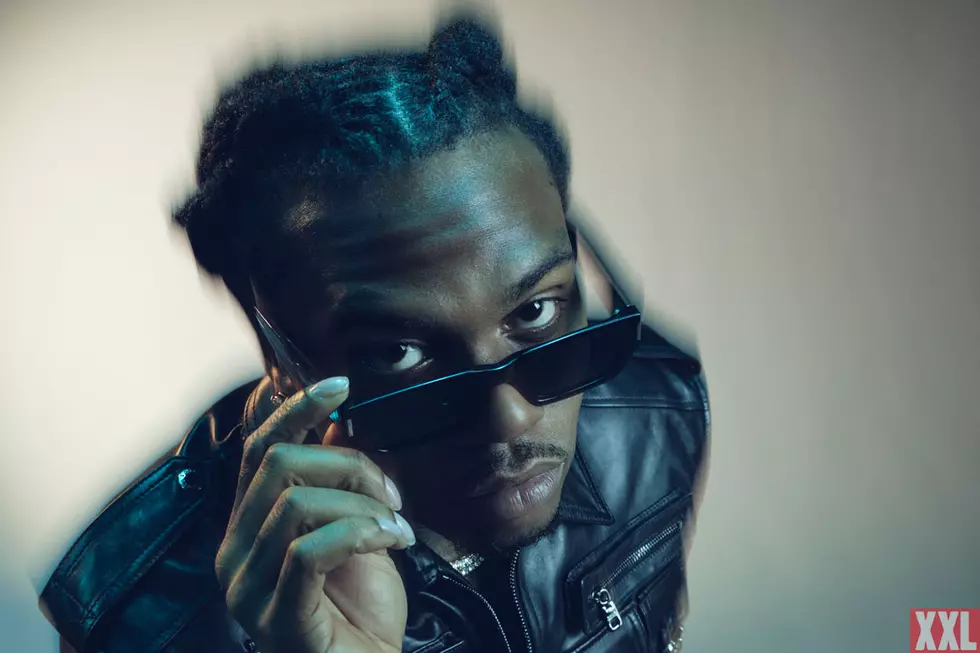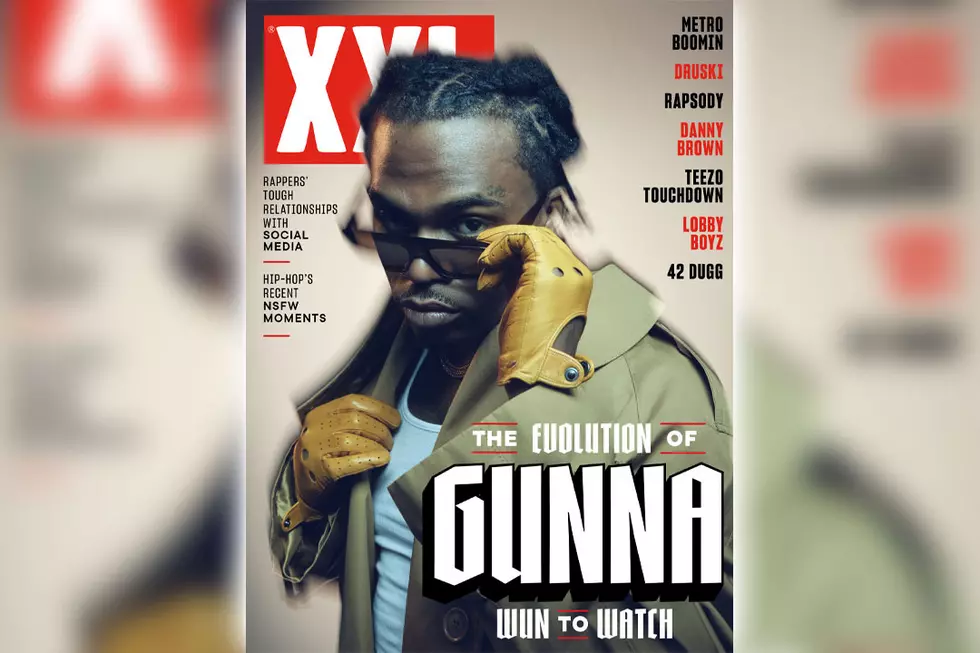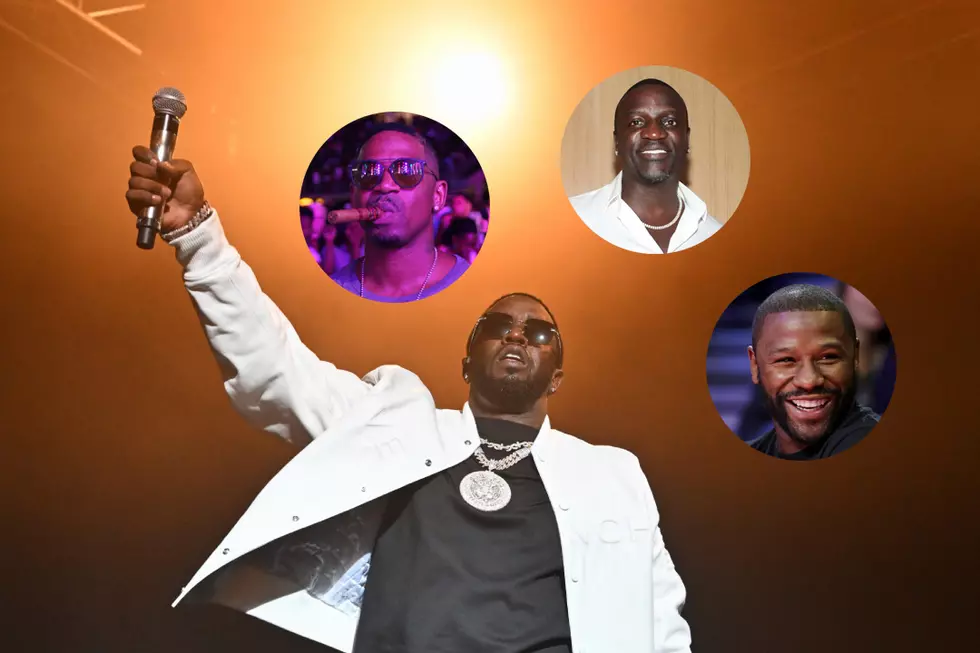
Marco Polo Updates The Past With His Vintage New York Sound On New Album
Marco Polo has had a busy year. The Toronto-born, New York-based producer has dropped three albums this year—Seize The Day with Gang Starr affiliate Hannibal Stax, Newport Authority, a collection of outtakes from his vault featuring the likes of Rakim, Big Daddy Kane and M.O.P., and his most recent, Nov. 12's Port Authority 2: The Director's Cut—and has been keeping busy working on music and touring with longtime collaborator Masta Ace. PA 2, the followup to 2007's original Port Authority, is a producer album of the highest quality, boasting impressive features from a reunited Organized Konfusion, Inspectah Deck, Styles P., Lil Fame, Large Professor, Talib Kweli, DJ Premier, Posdnous, Rah Digga, Ace and a whole bunch more, with actor Michael Rapaport—who Marco describes as "the New York version of me; a nerdy white guy who fucking loves hip-hop"—narrating the project.
But the past year has been a wakeup call of many kinds for the celebrated purveyor of the New York underground. He's redoubled his emphasis on grabbing syncs from licensing, landing high-profile placements in Kickass 2 ("Danger," featuring Torae) and with the theme song for the Brooklyn Nets, a placement which began last season and has continued into this. "That's shit I can tell my parents about, instead of like, 'Hey, I did a track with Rakim,' and my mom's like, 'I don't know who that is,'" he says, laughing, during a recent stop by the XXL offices. "But I can tell her to go see Kickass 2, or my dad can go watch the Nets, and that's definitely awesome."
With PA 2 out earlier this month, Marco Polo is turning his attention to his work on Pharoahe Monch's upcoming album—on which he has a song with Monch and The Roots' Black Thought that he describes as "fucking crazy"—and Sean Price's new project, as well as additional work with international MCs from Italy and Poland. And there's always his work with Masta Ace, with whom he may be making an album with the assistance of DJ Premier. "[Ace] has done a lot for my career," Marco says. "We're always working." —Dan Rys (@danrys)
XXL: What is it like working with Big Daddy Kane and Rakim?
Marco Polo: Um, it's awesome. [Laughs] It's like a dream come true, right? Kane I met through Masta Ace, Ace just called Kane and we got in touch and we did a joint, and it came out really good. And with Rakim I met him through Nick Wiz, who used to produce for him. I still talk to them on the phone, and it's like butterflies like a little girl. Me and Kane don't have any other new songs, but me and Rakim are steadily working and it's awesome.
How do you approach going into the studio with guys like that?
Well with both of those, unfortunately, it was all done over the phone, which I fucking hate. But with them, I made some exceptions to work with them. But generally, I have everyone come through my studio and I'm very hands-on, very involved in every project. It's not like just doing a beat, send it. I'm very involved with the content, how they deliver it, I'm very up on all that shit. Some people really appreciate that, and some people do not. [Laughs]
It's weird that not many people do that anymore. You can't make something like "The What" with Biggie and Method Man without both of them being in the studio together.
Absolutely. And you can tell. You can feel it in the music. That's why there was such a drop in classic stuff that lasts. 'Cause back in the day, everyone went into the studio; if you listen to a Leaders Of The New School track, or Tribe, it's like 14 of them yelling in the booth. It was the good old days! There's no groups left—groups used to go into the studio and trade two bars, four bars, and it was exciting. You felt it, and it makes an epic difference. And now it's just like, "You email me a 16, we'll slap it together." It's just not the same thing. There are people doing that though, now, I just feel like they're always under the radar.
Tell me about PA2.
It's my pride and joy. It's the follow up to my first producer album that I put out in 2007 on Rawkus and Soulspazm, Port Authority. It's basically a continuation of that—it's me doing all the beats and reaching out to MCs that I like working with. It's a mix of Golden Era and new. I think a lot of people, when they look at my catalog, they think I'm stuck on working with Golden Era artists, which isn't the case at all, I just work with people I like. If you rap well, I'll work with you. This one I feel like stepped it up; it's like an improved version of the first one.
All these songs were literally supposed to be on that first album, but I'm just really particular about certain things fitting into places. All this stuff is awesome, it just didn't necessarily fit that project. So I essentially made 2-3 albums worth of material; PA2 is the final one, and this exists because of that recording process. So I've been working on this for about five years.
What's changed for you since you first started working on it?
I think what's changed in my work routine is I'm focusing a lot more on licensing. Licensing companies will just keep an eye out for good music and they'll reach out to you, and we stay in touch. I have all my beats playing on all the MTV Shows, like Jersey Shore. There's like 30 shows my beats play; I just send them beats, and I've been doing that for a while, it's just not something we really advertise like that. And half the time, those bring in so much more money.
Is licensing an untapped revenue stream?
I wouldn't say it's new—it's been happening for a while—[but] I put like 10 percent of my time into sending companies my beats, and now that's gonna change. That 10 percent of my time I spent on licensing is bringing in more revenue than the 90 percent of my time I spend on other things. [Laughs] So I'm like, if I shift it 50/50, I can still make my albums and music, but still make money.
But a lot of licensing stuff, people that try to make music for something specific, it always turns out wack. Licensing companies love licensing the music you make for your own stuff; that's what they want. It's like, "Hey, we have a theme song, we need you to make a song about winning," and then you go and try to make a song with a rapper about winning and it's just the corniest shit. The song you made naturally with none of that in mind, they'll always gravitate toward that.
How do you go about identifying and flipping samples? What are you listening for?
Every producer hears something different. It's really simple; it's just something I find catchy. Because essentially you're going to be looping something, so what is something that is not gonna bore the shit out of me for three minutes? And I usually just gravitate towards interesting sounds that I can turn into an idea that I can listen to over and over again. 'Cause that's how I remember hip-hop, as two-bar loops. A lot of the classic stuff is really the same beat for four minutes. So if I'm not getting bored of it making it, it's going in the right direction.
I always try to dig for different records, too. I remember when 9th Wonder came out, he was going heavy with soul, and that type of thing. I was like, oh, that's dope, but because he's doing that, I'm gonna go into Latin, French, ethnic samples and make my shit just sound a little bit different. But I love all kinds of music, so it's just about me finding different things I'm interested in.
What have you been digging on recently?
It's always weird stuff, man. I always look for drums, that's the number one thing I look for. A lot of people look for loops and samples, I look for drum breaks. It's the most important thing in production; you could have an okay sample, but if the drums are rocking, for me that's the foundation for everything. But I'm also doing a lot of sample-free stuff, too, I just hate that term. I'm making a lot of music that is original now, and I think I've trained my ear and learned enough from being in the studio to make the stuff I'm making that's original sound vintage. So you won't know the difference; the big difference [for me] is that I can make money off of it.
My whole thing is just focusing on forward motion. I'm not trying to resurrect anything or keep anything alive—the spirit definitely—but I feel like my sound is influenced from that, but it's updated. A lot of what I hear today is purposely trying to go back there and make it sound like that, whereas I feel like my shit is updated for 2013, with that spirit. I think that's why people dig it.
You mentioned Joey Bada$$ and Action Bronson as people you would want to work with. How do you feel about the new wave of New York hip-hop?
I like them. I like those guys. There's a lot that I don't understand or don't connect to—I don't want to say I don't like—there's a lot of the new stuff that I like but it's in an entertainment way, rather than that I listen to it and it inspires music. I really like the Rare Chandeliers project that Alchemist did with Action. But I'm cool with Alchemist, and I'm a huge fan of his; he's from my school of producing wherein he knows how to go in and do an album for somebody. It's the most cohesive thing for me, that I've heard from Action. And Joey I think has shown a lot of potential—I'm sure he's working on his first official album, so we'll see what happens—but he has tons of potential.
What's it like touring the world?
It's amazing. It's crazy because you go there and you get more of the Old New York feeling than you get when you're here, which is depressing. When I first moved here, I felt it; I moved here from Toronto to get that inspiration, go to shows where it was packed for artists like Sean Price and Black Moon and Ace. And now it's a little different, times changed, people have moved on. So the style of music that we do is more popular, I guess, on other continents, so we go there and get that love, and it's just awesome. You go where the people who want you to perform.
But people are learning. I've never tripped over it, I'm never that person shaking my fist at fans; it's on us to tell them, it's on new artists to educate them, and I think the thing about Joey Bada$$ is that, I think through the style of music that he makes, the kids that listen to him will eventually be led to the stuff that we listened to.
More From XXL


